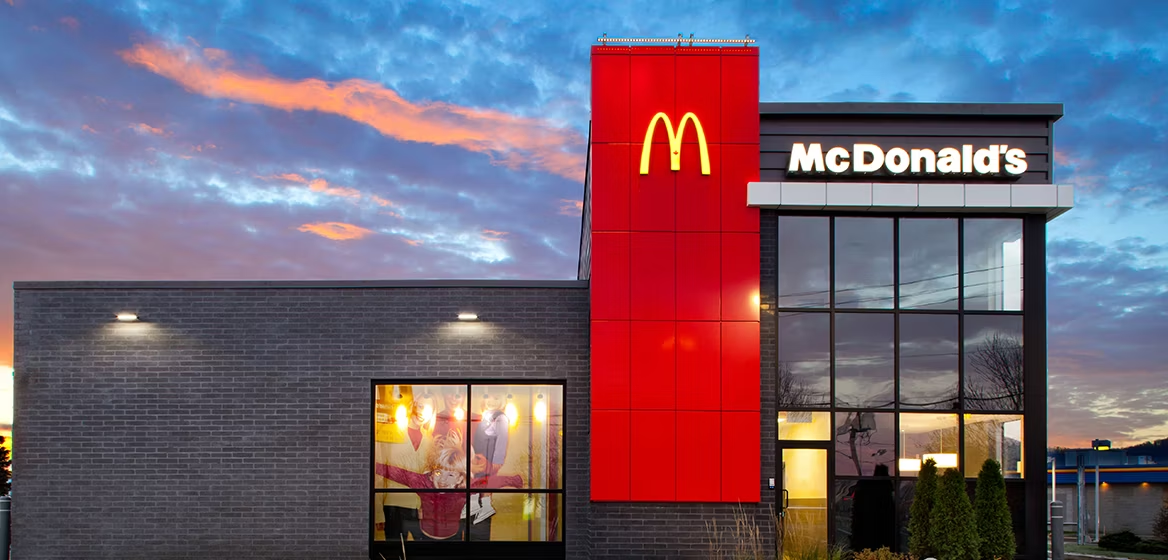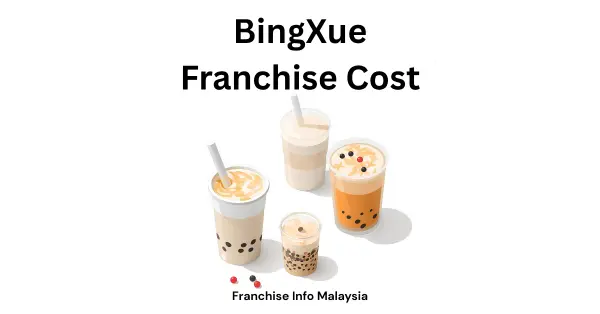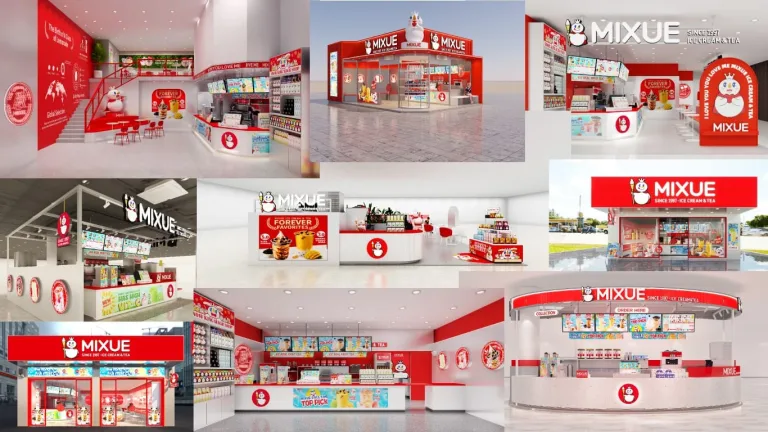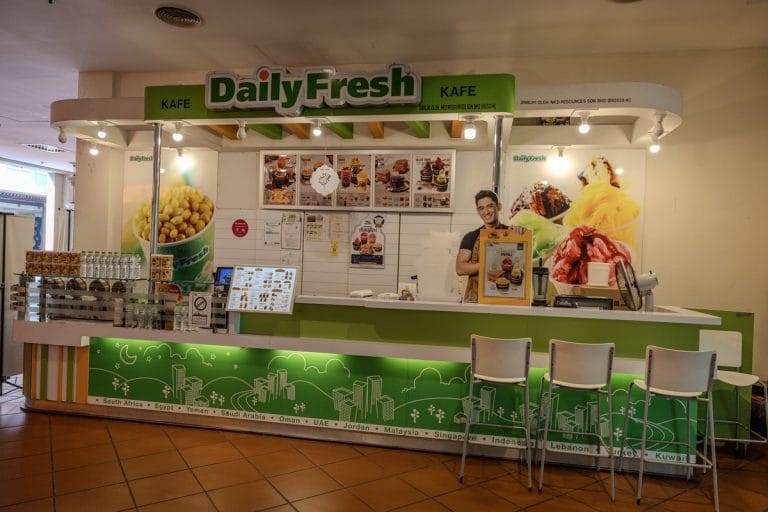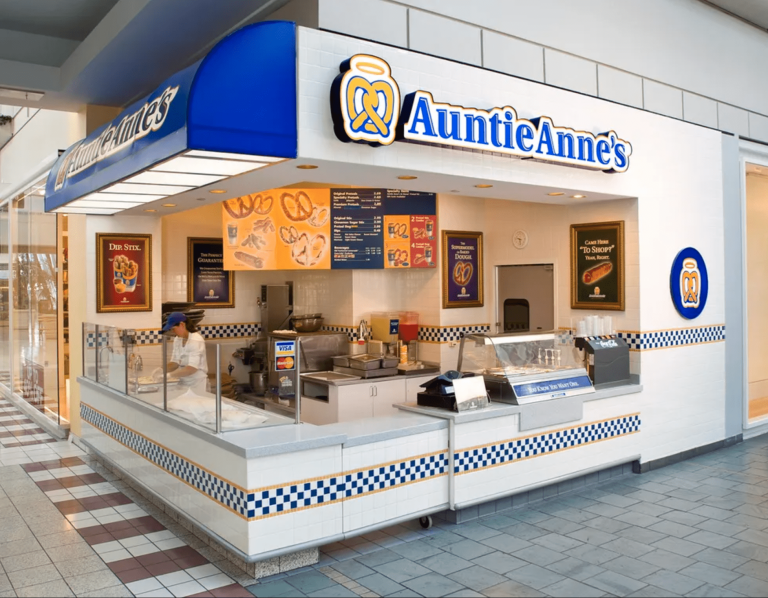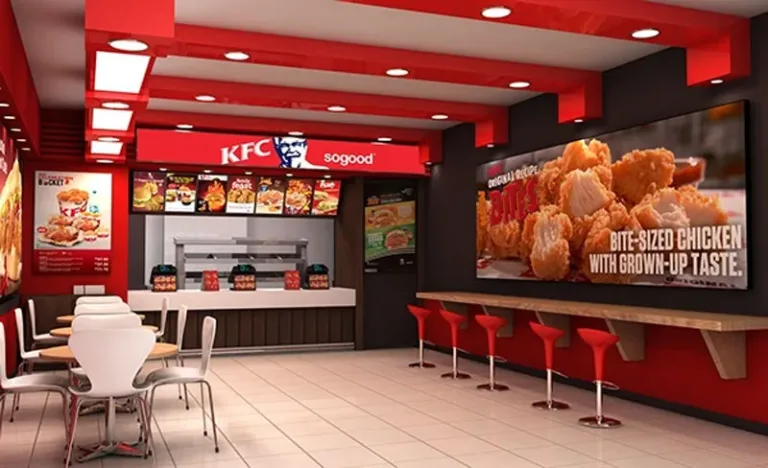McDonald’s Franchise Cost 2025
For decades, McDonald’s has stood as a global icon of fast food, synonymous with convenience, consistency, and the quintessential burger and fries experience. However, entering 2025, the brand, like many global entities, continues to navigate complex geopolitical landscapes, including the impacts of widespread boycotts that gained significant traction starting in late 2023 and carried into 2024, affecting sales in various international markets. Despite these challenges, the golden arches remain a powerful symbol of entrepreneurship for many aspiring business owners. If you’re considering joining this immense network, understanding the intricacies of the McDonald’s Franchise 2025 cost and requirements is your crucial first step.
This comprehensive guide will delve into what it takes to own a piece of this global phenomenon in 2025, from initial investment to ongoing fees, and much more.
About McDonald’s
Founded in 1940 by brothers Richard and Maurice McDonald in San Bernardino, California, McDonald’s began as a barbecue restaurant. It was Ray Kroc, a milkshake machine salesman, who saw the immense potential in their “Speedee Service System” and eventually purchased the company in 1961. Kroc’s vision transformed McDonald’s into the world’s largest restaurant chain by revenue, serving over 69 million customers daily in over 100 countries across more than 40,000 locations.
Why Choose a McDonald’s Franchise?
Despite recent challenges, the appeal of a McDonald’s franchise remains strong for several compelling reasons:
- Globally Recognized Brand: McDonald’s is one of the most recognizable brands in the world, benefiting from immense customer trust and brand loyalty built over decades. This significantly reduces the marketing burden for new franchisees.
- Proven Business Model: The McDonald’s System is a meticulously developed and refined operational blueprint. Franchisees receive extensive training and continuous support, leveraging decades of experience in the fast-food industry.
- Extensive Training and Support: McDonald’s is famous for its “Hamburger University,” providing comprehensive training in all aspects of restaurant operations, management, and customer service. Ongoing support is provided in areas like marketing, supply chain, quality control, and human resources.
- Strong Supply Chain: McDonald’s has an established, efficient, and ethical global supply chain, ensuring consistent quality and availability of ingredients, which can be a huge advantage for franchisees.
- Real Estate Advantage: A significant portion of McDonald’s’ business model involves owning the land and buildings for many of its restaurants, then leasing them to franchisees. This offers stability and prime locations, though it also represents a substantial ongoing cost.
Requirement to Open a McDonald’s Franchise
Becoming a McDonald’s franchisee is a rigorous process designed to identify individuals with the right blend of financial capability, business acumen, and dedication. While requirements can vary slightly by region, the core criteria are generally consistent for McDonald’s Franchise 2025 applicants:
- Significant Non-Borrowed Personal Resources: This is arguably the most critical requirement. McDonald’s mandates that a substantial portion of the initial investment must come from non-borrowed personal funds. For a traditional restaurant, this typically means a minimum of $500,000 in liquid assets (cash, marketable securities, or other easily convertible assets). This ensures the franchisee has the financial stability to withstand initial operational challenges.
- Business Acumen and Experience: Ideal candidates have a proven track record in managing a business, leading teams, and understanding financial statements. Experience in the quick-service restaurant (QSR) industry is a plus but not strictly mandatory, as McDonald’s provides extensive training.
- Commitment to Operations: Franchisees are expected to be hands-on operators, dedicating their full time and effort to the restaurant’s daily operations. This is not a passive investment.
- Long-Term Commitment: McDonald’s seeks individuals who are looking for a long-term business relationship, with franchise agreements typically spanning 20 years.
- Residency: For most markets, applicants are required to be residents of the country where the franchise will operate.
- Training Program Completion: All prospective franchisees must successfully complete McDonald’s’ rigorous training program, which can last 9-18 months and involves extensive in-restaurant training.
How Much to Open a McDonald’s Franchise
The cost to open a McDonald’s franchise is substantial, reflecting the brand’s global scale, prime real estate, and sophisticated operational setup. The figures provided below are estimates based on McDonald’s’ 2024 Franchise Disclosure Document (FDD).
The total investment to begin operation of a traditional McDonald’s franchise typically ranges from $1,470,500 to $2,642,000.
Here’s a breakdown of the key components:
- Initial Franchise Fee:
- This is a one-time fee paid to McDonald’s for the right to use its trademarks, business system, and receive initial training and support.
- Cost: $45,000
- Real Estate and Building Costs (Rent):
- Unlike many franchises, McDonald’s typically owns the land and building for its restaurants and leases them to franchisees. This initial investment typically covers three months’ rent, security deposits, etc.
- Cost: $0 to $313,000 (depending on if it’s a new or existing restaurant, and local rental market)
- Signs, Seating, Equipment, and Decor:
- This is the largest portion of the initial investment, covering all the necessary fixtures, kitchen equipment, dining area furnishings, drive-thru systems, and brand-standard decor.
- Cost: $1,100,000 to $1,715,000
- Opening Inventory:
- Initial stock of food, packaging, and supplies.
- Cost: $20,000 to $39,000
- Miscellaneous Opening Expenses:
- Includes business licenses, permits, utility deposits, professional fees (legal, accounting), pre-opening labor, and other unforeseen costs.
- Cost: $52,500 to $64,000
- Training and Travel Expenses:
- Costs associated with completing the mandatory training program, including travel and living expenses.
- Cost: $3,000 to $40,000
- Additional Funds (Working Capital for 3 Months):
- Crucial for covering initial operating expenses (payroll, utilities, initial marketing, unforeseen costs) before the business achieves sufficient cash flow.
- Cost: Approximately $250,000 to $355,000
Ongoing Fees for a McDonald’s Franchise (as of 2025 for new franchises):
- Royalty Fee:
- For new franchise locations in the U.S. and Canada, this fee increased to 5% of gross sales starting in 2024. For existing franchises, it might still be 4%.
- Advertising and Promotion Fees:
- Franchisees contribute to national and local advertising efforts.
- Cost: At least 4% of gross sales
- Rent:
- Ongoing rent payments to McDonald’s Corporation, often a percentage of gross sales (e.g., 15-20%) or a fixed amount, depending on the agreement.
Profit/Margin Breakdown
It’s important to note that actual profits vary wildly based on location, management efficiency, sales volume, and local market conditions. This is a highly simplified estimate based on industry averages and reported figures, particularly for a successful Traditional McDonald’s restaurant.
| Category | Percentage of Gross Sales (Estimated) | Notes |
| Gross Sales | 100% | Average annual sales volume for a Traditional McDonald’s franchise is often cited around $3.9 – $4.0 million. |
| Cost of Goods Sold (COGS) | 28% – 32% | Food, paper, and other direct product costs. |
| Payroll & Benefits | 25% – 30% | Wages, salaries, benefits, and payroll taxes for all staff. |
| Occupancy Costs (Rent) | 15% – 20% | Paid to McDonald’s Corporation for land and building. This is a major expense. |
| Operating Expenses | 5% – 8% | Utilities, repairs & maintenance, supplies, insurance, cleaning, etc. |
| Royalty Fee | 5% | Paid to McDonald’s Corporation. |
| Advertising Fee | 4% | Paid to the advertising cooperative. |
| Total Expenses | 77% – 95% | This range is broad due to various factors. |
| Operating Profit Margin | 5% – 23% | Typically cited as 10% – 15% for McDonald’s franchises, though strong performers can achieve higher. If average sales are $3.9 million, a 15% operating profit would be around $585,000 before debt service, taxes, and owner’s compensation. After taxes and debt, owner’s take-home can vary significantly ($76,000 – $142,000+ per year). |
Disclaimer: This table provides a simplified estimate. Actual financial performance varies greatly and depends on numerous factors unique to each location and market. Prospective franchisees should consult the official Franchise Disclosure Document (FDD) and conduct thorough due diligence, including professional financial advice.
McDonald’s Menu Price
McDonald’s prices vary by country, region, and even specific restaurant location due to differing operational costs, local taxes, supply chain expenses, and market demand. In Malaysia, McDonald’s offers a diverse menu that blends global favorites with local adaptations like the Nasi Lemak McD or Ayam Goreng McD.
As of June 2025, you can expect typical menu prices in Malaysia to be in the following general ranges (prices are illustrative and subject to change):
- Standard Burgers (e.g., McChicken, Double Cheeseburger): RM 10 – RM 15
- Signature Burgers (e.g., Big Mac, Quarter Pounder with Cheese): RM 13 – RM 20
- Ayam Goreng McD (Fried Chicken): RM 12 – RM 18 (for 2-3 pieces combo)
- McD Meals (Combo with fries & drink): RM 15 – RM 25
- Breakfast Items (e.g., Sausage McMuffin): RM 7 – RM 10
- Sides (Fries, drinks, desserts): RM 5 – RM 10
- Happy Meals: RM 10 – RM 15
These prices are generally competitive within the Malaysian fast-food market, reflecting McDonald’s strategy to provide value while maintaining quality.
McDonald’s Owner
The McDonald’s Corporation is a publicly traded company (NYSE: MCD). This means it is not owned by a single individual or family but by its shareholders. These shareholders can be:
- Individual Investors: Regular people who buy shares of McDonald’s stock.
- Institutional Investors: Large organizations like mutual funds, pension funds, hedge funds, and investment firms (e.g., Vanguard, BlackRock, SSgA Funds Management) that hold significant portions of the company’s stock on behalf of their clients.
While Ray Kroc purchased the company from the McDonald brothers and built it into a global empire, today, the ownership is distributed among millions of shareholders worldwide. The executive management team (led by the CEO) is responsible for the day-to-day operations and strategic direction, accountable to the Board of Directors, who in turn represent the shareholders. Franchisees, while owning their individual restaurants, operate under licensing agreements with the corporation and are also crucial stakeholders in the brand’s collective success.
McDonald’s Contact
If you are seriously interested in exploring a McDonald’s Franchise 2025 opportunity, the best way to make contact is through their official channels:
Official Website: www.mcdonalds.com.my
Address: 120-120A Jalan Bukit Bintang, 55100, Kuala Lumpur, Malaysia.
Tel: 03-21427843.
Frequently Asked Questions (FAQs)
Yes, McDonald’s franchises can be highly profitable, with many locations generating millions in annual sales. However, profit margins can be modest (often 10-15% of gross sales) due to significant ongoing fees (rent, royalties, advertising). Owner take-home profit varies greatly based on location, sales volume, and operational efficiency.
You generally need a minimum of $500,000 in non-borrowed liquid assets to qualify for a traditional McDonald’s franchise in 2025.
McDonald’s does not directly offer financing, but they have relationships with approved lenders who understand their business model. They require a significant portion of the initial investment to be from personal, non-borrowed funds.
The comprehensive training program, which includes time at “Hamburger University” and in-restaurant experience, can last anywhere from 9 to 18 months.
No. McDonald’s is highly selective about new locations. They conduct extensive market research and real estate evaluation, and they decide where new restaurants will be developed, considering factors like population density, traffic patterns, and existing market saturation. Franchisees typically do not choose the exact location but are offered opportunities in designated areas.
Is McDonald’s Halal Certified?
This is a very important question, particularly in regions like Malaysia.
Yes, McDonald’s Malaysia is Halal certified.
McDonald’s Malaysia is committed to adhering to the principle of Halal. They ensure that all their operational processes, ingredients, and menu items meet the stringent requirements of the Manual Procedure for Malaysia Halal Certification, which is overseen by JAKIM (Department of Islamic Development Malaysia).
They source their meat products from suppliers who are also Halal-certified and approved by relevant authorities, including the Department of Veterinary Services Malaysia and JAKIM. This commitment is regularly audited to maintain their Halal certification, ensuring that the food served is permissible and wholesome for Muslim consumers. This transparency is crucial, especially in light of the global dialogues and boycotts that began in 2024, as consumers increasingly seek clarity on such certifications.
How to apply Franchise:
- Research & Inquiry: Before everything, explore franchise options online to find the suitable franchise for you. Visit the franchisor’s website or franchise resource website and contact them.
- Application & Qualification: Complete the franchise application. Provide financial documents they requested. Attend an initial interview to understand their latest business plan and strategy.
- FDD & Agreement: Review the Franchise Disclosure Document (FDD). If you don’t know what is FDD, read the article here. If everything is good, sign the franchise agreement.
- Training & Support: Complete the franchisor’s training program. Get help with site selection and setup. Receive ongoing operational support.
- Outlet Opening & Operation: Now, start to set up your franchise outlet. Then you can launch your business. Remember, always follow franchisor guidelines.
About Franchise-Info
Explore, Compare, & Invest Franchise Opportunities in Malaysia
Subscribe Now: Get Monthly Franchise News and Industry Updates.
Resources:
- Zenn blog: McDonalds & The Power of Brand Consistency: Creating a Cohesive Brand Experience
- BBC: McDonald’s: Behind the fast-food firm’s boycott controversy
- McDonald’s: McDonald’s History
- University of New Hampshire: Raymond “Ray” Kroc
- TimesPro: How McDonald’s Supply Chain Drives Global Success?
